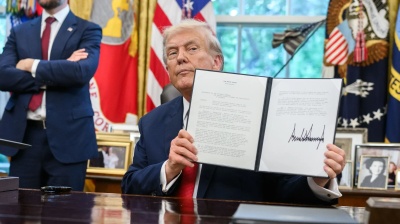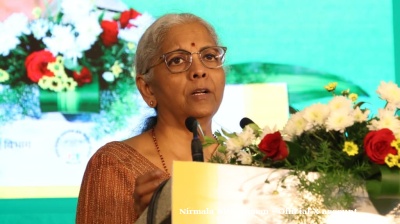Russia launched a full-scale invasion of Ukraine in the early hours of Thursday morning, February 24, with bombings of cities and troop incursions by land and sea across a broad front.
President Vladimir Putin announced what he called a “special military operation” in what appears to be a pre-recorded televised address at 2.30 am GMT while an emergency meeting of the UN security council was underway in New York to avert conflict.
“The goal is to defend people who have been victims of abuse and genocide from the Kyiv regime. And we will strive to demilitarise and de-Nazify Ukraine,” Putin said. “All responsibility for the possible bloodshed will be fully and completely on the conscience of the ruling regime.”
He warned of “consequences greater than any you have faced in history” if there was any attempt by outside countries to interfere.
In a tweet, Ukrainian Foreign Minister Dmytro Kuleba said Russia had launched a “full-scale invasion”.
“Peaceful Ukrainian cities are under strikes. This is a war of aggression. Ukraine will defend itself and will win,” he said. “Ukraine will defend itself and will win. The world can and must stop Putin. The time to act is now.”
Ukrainian officials reported that Russian troops had landed by sea at Odesa and were crossing the border near Kharkiv. Western countries estimate that Russia has massed around 190,000 troops around Ukraine's borders.
Russia’s defence ministry said it had attacked Ukrainian air bases and air defences, disabling them, Russian news agencies reported.
The attack has pushed the oil price up more than 5% to $102 per barrel, the first time it has hit $100 for eight years. The ruble has fallen by more than 6% to a record low of RUB86.81 to the dollar. Moscow’s stock exchange suspended all trading on Thursday after sharp falls earlier in the week.
The Russian invasion folows Putin’s recognition of the separatist so-called republics of Donetsk and Luhansk on Monday, February 21 and their leaders' call for Russian military support to take over the entire extent of their regions and defend themselves against what they called Ukrainian “aggression”.
Western countries have already imposed some sanctions on Moscow for recognising the two republics and these are set to be reinforced following the confirmation of Russia’s invasion of the rest of Ukraine. The US has already prepared a “sanctions from hell” bill of more extensive sanctions that names 13 banks and also the Nord Stream 2 gas pipeline as possible targets.
US President Joe Biden said in a written statement on Thursday that “the prayers of the entire world are with the people of Ukraine tonight as they suffer an unprovoked and unjustified attack by Russian military forces”.
The US has already announced that it its reinforcing its presence in Estonia, where it leads a Nato battlegroup, and Canada has announced it will also strengthen its forces in Latvia, where it leads another. But the US has made clear that it will not intervene to defend Ukraine.
In the face of the looming invasion the government in Kyiv declared on February 23 that a 30-day state of emergency will be introduced. Kyiv called up military reservists between the ages of 18 and 60 and allowed ordinary civilians to carry firearms. On Thursday, following the confirmation of the Russian invasion, Kyiv declared martial law.
News

Trump authorises CIA covert operations in Venezuela to topple Maduro
The White House has acknowledged granting the Central Intelligence Agency sweeping powers to conduct covert operations aimed at unseating President Nicolás Maduro, the NYT reported.

India’s finance minister to miss upcoming IMF and World Bank meetings
India’s Finance Minister Nirmala Sitharaman will not attend this week’s annual meetings of the International Monetary Fund and World Bank in Washington, as trade negotiations between New Delhi and Washington remain unresolved.

Young Ukrainians asylum seekers fleeing the war for Germany surges
The number of young Ukrainian fleeing the war and seeking asylum in Germany has surged, following Ukraine’s decision to partially lift its travel ban for men aged 18 to 22, according to figures from the German Interior Ministry.

US may double support for Argentina to $40bn conditional on policy reforms
Washington buys Argentine pesos and mulls creating a new private sector-led $20bn debt facility, which would bring total support to $40bn with the existing swap line, Treasury Secretary Bessent said.



